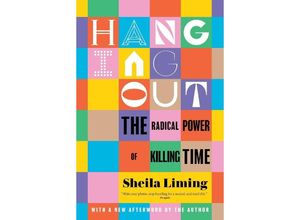Hide your phone stop hustling for a second and read this passionate argument for the
importance of unstructured pre-digital hang. —People Loneliness is an epidemic it feels harder
than ever to connect with others meaningfully. What can we do to remedy this? Sheila Liming has
the answer: we need to hang out more. With the introduction of AI and constant Zoom meetings
our lives have become more fractured digital and chaotic. Hanging Out: The Radical Power of
Killing Time shows us what we have lost to the frenetic pace of digital life and how to get it
back. Combining personal narrative with pungent analyses of books movies and TV shows Sheila
Liming shows us how the new social landscape deadens our connections with others — connections
that are vital to both self-care and to a vibrant community. Whether drinking with strangers in
a distant city or jamming with musician friends in an abandoned Pittsburgh row house Liming
demonstrates that unstructured social time is the key to a freer happier sense of self.
Hanging Out shows how simple acts of casual connection are the glue that binds us together and
how community is the antidote to the disconnection and isolation that dominates contemporary
life. The book conceives of hanging out as a way to reclaim time as something other than a raw
ingredient to be converted into productivity. —New York Times Rich with illuminating stories.”
—Slate We could all use more of that blissfully unstructured social time posits Sheila Liming
in the well-considered series of arguments found in Hanging Out. —Reader's Digest Opens with a
simple and expansive account of what hanging out is … Liming dedicates much of the book to
stories from her past. She has lived an interesting life and she tells these stories well.”
—Washington Post Sharp and vivid writing … a layered exploration of social dynamics that
contains some textured literary criticism.” —Bookforum More books about hanging out less about
productivity please. Sheila Liming sees the gap in our thinking about time and the true worth
in spending it in an unstructured fashion with members of our community.” —LitHub

